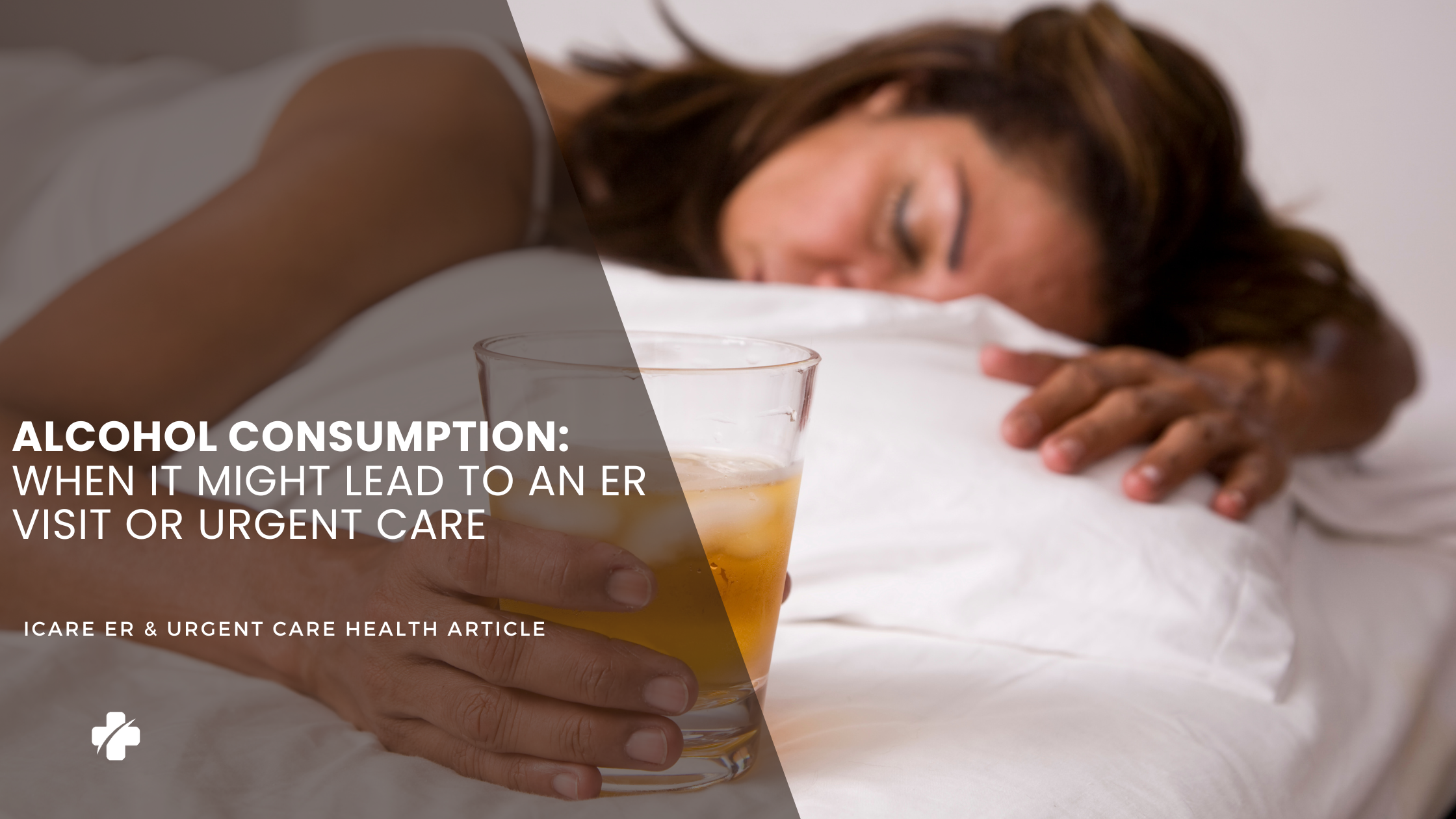Navigating Alcohol Consumption: Understanding When It Might Lead to an ER Visit or Urgent Care

Introduction: Alcohol, a ubiquitous part of social gatherings and relaxation for many, can sometimes take a toll on our bodies. While moderate consumption is generally harmless for most individuals, excessive intake can lead to a range of health concerns, some of which may require medical attention. Understanding when alcohol consumption might necessitate a trip to the ER or urgent care is crucial for maintaining overall well-being.
Understanding Moderate vs. Excessive Consumption:
Before delving into the circumstances that might lead to an ER visit or urgent care due to alcohol consumption, it’s important to distinguish between moderate and excessive drinking. Moderate drinking is generally defined as up to one drink per day for women and up to two drinks per day for men, according to the Dietary Guidelines for Americans. Excessive drinking, on the other hand, includes binge drinking (consuming four or more drinks for women and five or more drinks for men in a short period) and heavy drinking (consuming eight or more drinks per week for women and 15 or more drinks per week for men).

When Might Alcohol Consumption Lead to an ER Visit or Urgent Care Trip?
- Alcohol Poisoning: One of the most severe consequences of excessive alcohol consumption is alcohol poisoning. This occurs when high levels of alcohol in the bloodstream suppress vital functions such as breathing, heart rate, and gag reflex. Symptoms of alcohol poisoning include confusion, vomiting, seizures, slow or irregular breathing, blue-tinged or pale skin, and unconsciousness. If someone exhibits these symptoms after drinking, it’s crucial to seek immediate medical attention by calling emergency services or visiting the nearest ER.
- Accidents and Injuries: Alcohol impairs judgment, coordination, and reaction time, increasing the risk of accidents and injuries. Falls, car accidents, burns, drownings, and other traumatic injuries are common outcomes of alcohol-related incidents. Depending on the severity of the injury, individuals may require urgent medical care to address wounds, fractures, or internal injuries.
- Alcohol Withdrawal: For individuals with alcohol dependence or addiction, suddenly reducing or stopping alcohol consumption can trigger withdrawal symptoms, which may range from mild to severe. Symptoms of alcohol withdrawal include anxiety, tremors, nausea, vomiting, hallucinations, seizures, and delirium tremens (a severe form of alcohol withdrawal characterized by confusion, agitation, and hallucinations). Severe alcohol withdrawal can be life-threatening and requires immediate medical attention, often in an urgent care or ER setting.
- Chronic Health Conditions: Excessive alcohol consumption is associated with an increased risk of developing chronic health conditions such as liver disease, pancreatitis, cardiovascular disease, and certain cancers. In some cases, complications from these conditions may necessitate urgent medical intervention, especially if symptoms flare up suddenly or become severe.
Preventing Alcohol-Related Emergencies:
While alcohol-related emergencies can be serious, many are preventable with responsible drinking practices and awareness of personal limits. Here are some tips for reducing the risk of alcohol-related incidents:
- Know your limits: Understand how alcohol affects your body and stick to moderate drinking guidelines.
- Pace yourself: Avoid binge drinking by spacing out your drinks over time and alternating with non-alcoholic beverages.
- Have a plan: If you’re going to be drinking, arrange for a designated driver, use rideshare services, or plan alternative transportation in advance.
- Watch out for others: Look out for friends or acquaintances who may be overindulging and intervene if necessary to prevent potential harm.
Conclusion: While moderate alcohol consumption can enhance social experiences, it’s crucial to recognize when drinking becomes hazardous. Understanding signs of alcohol poisoning and risks of excessive intake is key to safeguarding health. Practice responsible habits to minimize emergencies. If you or someone you know faces alcohol-related issues in Frisco, Fort Worth, or Forney, TX, seek help at iCare ER and Urgent Care. Our skilled team offers prompt, professional assistance for alcohol-related emergencies, prioritizing your well-being. Trust iCare for compassionate care when it matters most.
FOLLOW US ON SOCIAL FOR MORE RELEVANT,
LOCAL HEALTH INFORMATION